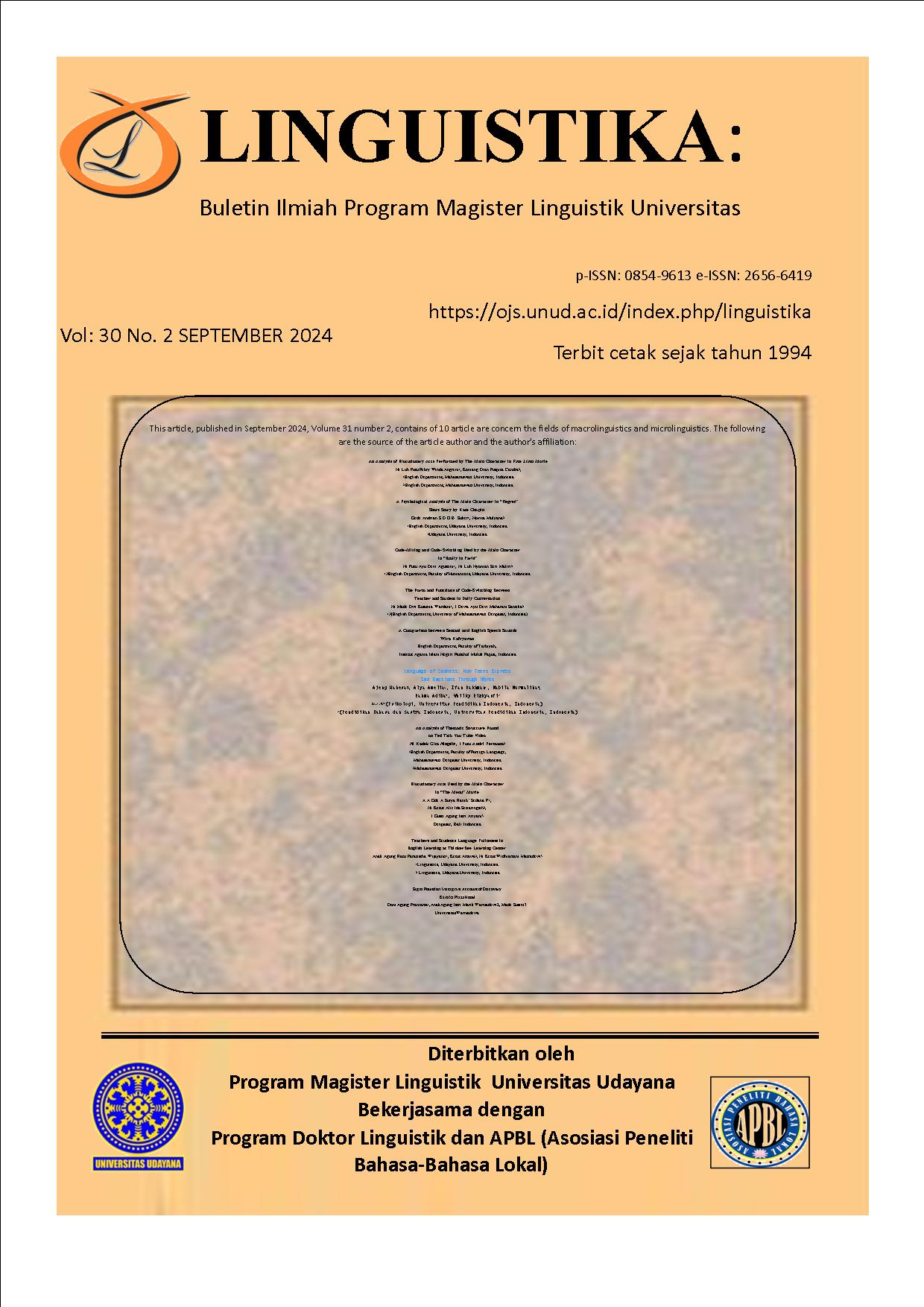An Analysis of Illocutionary Acts Performed by The Main Character in Four Lions Movie
Abstract
This research discusses the using of illocutionary acts in the utterance of character in Four Lions movie. The aims of this research are to find out the types and the dominant type of illocutionary act in the Four Lions movie written by Morris, Sam Bain and Jesse Armstrong. The research used the theory from Searle (1979) in analyzing the script. The researcher use qualitative method by collecting data from watching the movie, analyzing the dialogues of each characters, and taking noted. The result of this research, there were 35 illocutionary acts. The findings indicated that Four Lions movie applied five types of illocutionary acts: Assertives with 4 data (12%), directives 18 (52%), expressives 7 (20%), commissives 5 (15%), and 1 declaratives (3%). The sub-classifications of illocutionary acts are found including: assertives; stating, informing, and asserting. Directives; asking, commanding, suggesting, and inviting. Expressives; thanking and apologizing. Commissives; promising, refusing, and offering. Declaratives; confessing.













